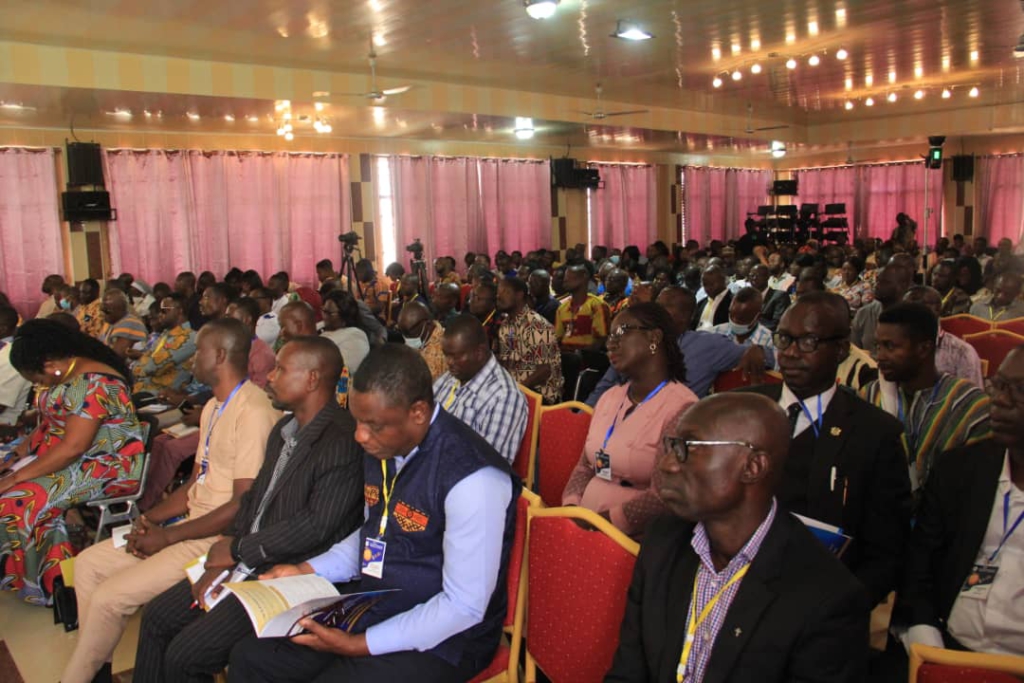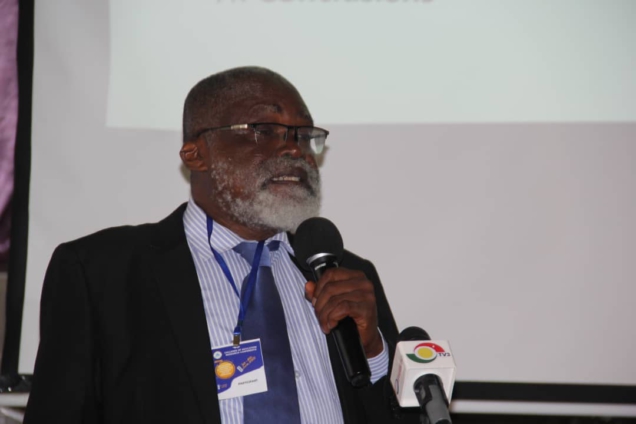A Professor of Geography and Rural Development at the Kwame Nkrumah University of Science and Technology (KNUST), Professor Daniel Buor has called for a major percentage of the government's Appiatse Development Fund be devoted to the education of vulnerable children.
According to him, despite the increased number of children affected by disasters, humanitarian aid for education nearly halved between 2010 and 2015, creating an annual funding gap of $8.5 billion, said Prof Buor.
"In 2015, less than 2% of all humanitarian aid went to education", he noted.
He therefore recommended that, "The government of Ghana has set up Appiate Development Fund to mobilise financial support for the development of the shattered community. It is hoped a significant portion of the fund shall be allocated to the education of vulnerable children".
Professor Bour made the suggestion at a research conference of the Colleges of Education and Social Education Research at Nsuta in the Ashanti region.
In his opinion, there are still teething problems in dealing with post-emergency situations; adding that, humanitarian aid during calamities has been insufficient.
At the conference, Professor Bour further stated that despite calamities in various areas around the country, children are driven to learn, citing an 8-year-old boy named Kwesi who survived the Appiate disaster and is anxious to return to school.

According to him, when UNICEF representatives questioned Kwesi's education, he answered, "I want to go back to school and see how well I did during the exam".
As a result, UNICEF gave school supplies to assist the victims in continuing their education in their temporary housing.
Despite efforts by government and humanitarian organizations to address issues of education for children and youth during calamities, there are still obstacles to overcome.
Per the numbers, 12 percent of children in emergency situations who needed education support were helped, and education in emergency situations only received 48 percent of what it had requested in 2016, which is lower than the norm for other sectors.
According to the Robert Strauss Centre for International Security and Law, almost 500 million school-aged children reside in countries where continuing catastrophes are present. Also 75 million children and teenagers had their education disrupted, had poor-quality education, or dropped out entirely in 2017.
The conference was therefore designed to offer thought leadership within the teacher education community and foster education development partnership between government, CSOs in education, and academia.
It brought together scholars, practitioners, policymakers and government officials in the country to discuss educational advancements.
About 310 researchers, practitioners, policy makers and CSOs are attending the 2-day event.
Latest Stories
-
WAEC: 16 arrested for malpractice in 2025 BECE, including 12 invigilators
7 minutes -
Kowa Naso crowned champions of 2025 Thomas Partey Tournament
11 minutes -
Israel urges Ghana to re-examine non-aligned stance on critical global issues
17 minutes -
Interior Minister inaugurates NACOC Governing Council, charges members to lead drug war
29 minutes -
We’ll complete Eastern Corridor Road under ‘Big Push’ agenda – Mahama
32 minutes -
Dr Bryan Acheampong calls for unity within NPP amid rising tensions
49 minutes -
Full text: AG’s statement on ORAL investigation into financial malfeasance at NSA
60 minutes -
Dr. Bernie Asher: The finished work of atonement
2 hours -
Ghana Party in the Park to mark 20th anniversary with unforgettable celebrations
2 hours -
State institutions that fail to sign performance contracts will be sanctioned – SIGA boss warns
2 hours -
Photos: Dagbon Overlord pays courtesy call on Mahama
2 hours -
When Nigeria becomes great, Africa will be great: A Pan-African perspective on the continent’s destiny
2 hours -
My gov’t will not sideline traditional rulers – Mahama
3 hours -
Malaria activist leads grassroots fight in Zimbabwe and Cameroon
3 hours -
Anabel Rose takes over Open Mic with In Bloom Experience
3 hours

